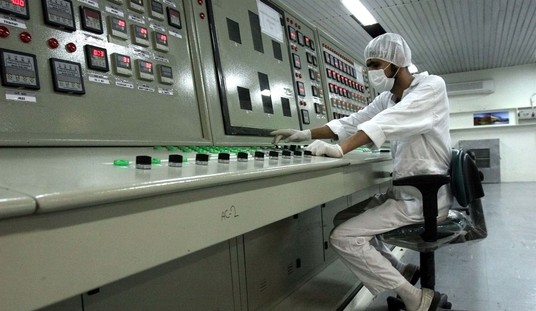When the history of the 2012 fiscal cliff debate is written, conspicuously absent will be any mention of robust presidential leadership to avert the impending financial crisis. Whatever the president believes was the basis for his reelection, surely he cannot think he was given another term to simply be, as he has been, a mere observer of national crises.
Observers can be important, in elections for instance. They monitor to ensure the process is fair and proceeds according to established standards. But they have no responsibility for taking an active role to determine the outcome of the election. Similarly, football referees call penalties and manage the clock, but they don’t take the field for offensive or defensive purposes.
In legislative bodies, it’s possible for individuals to play similarly passive roles, with little negative repercussions, as long as one votes and doesn’t create a scandal. President Obama perfected this non-engagement in the Illinois state senate, voting present the majority of the time.
Now as president, however, Barack Obama appears to have had difficulty inhabiting his role as “the decider,” as President George W. Bush termed himself. Bob Woodward’s The Price of Politics illustrates this dynamic in the August 2011 debt ceiling fight, and it perfectly captures the president’s failure of leadership now.
In conversations with senior White House and Capitol Hill staffers, Woodward paints a picture of a president adrift, unfocused, and unable to commit to specific policy proposals, direct the White House policy process, or negotiate with House Speaker John Boehner on a debt ceiling compromise. He even managed to offend Harry Reid and Nancy Pelosi by his bullheaded insistence on unhelpful provocation, and his inability to work for a meaningful, mutually-disagreeable compromise. Most amazingly, in Woodward’s retelling, he even manages to make these notoriously uncompromising congressional leaders seem reasonable, no small feat.
Recommended
History seems to be repeating itself here. Then, as now, the president offers a square political solution to a round economic problem: he campaigns for increasing the marginal tax rates of the wealthiest 2 percent, even though all economists recognize this would do nothing to solve our long-term fiscal problems. The president has yet offer a viable plan with specific details, just slogans about fairness.
Why the president remains committed to a slogan in the absence of a real plan remains the most puzzling question. Again, Woodward’s book provides an insight. It notes how Obama’s political adviser David Plouffe sat in on every debt ceiling meeting and analyzed every specific proposal through the Washington lens of political winners and losers. As a result, whether Speaker Boehner’s proposed plans were good for the economy was secondary to the primary consideration of how any proposed deal would play politically and affect Obama’s reelection.
As a result of this politics-first approach being applied now, Tim Geithner has said the president is willing to sink the economy in the name of raising marginal tax rates on a wealthy few Americans, perhaps because “raising tax rates on the rich” makes for a salable talking point. But it’s no substitute for a real plan.
In contrast, the Republicans have offered several viable options (admittedly none of them great), but Obama is uninterested in anything resembling a solution. $800 billion in revenues combined with $1.4 trillion in cuts? Not interested. Increasing revenues by capping deductions at 2%? Nope. Simpson-Bowles? Not a chance. Tax reform? Yawn. Congressional two-step involving short-term fiscal resolution followed by long term entitlement reform? No thanks. Return to Clinton-level tax rates for middle and upper income Americans? No way.
Indeed, the only thing the president seems capable of is engaging in whack-a-mole demonization of his political opponents for any proposal they offer that does not identically reflect the president’s apparent fiscal death wish. This is not negotiation or presidential leadership. This is my-way-or-the-highway juvenile petulance. The presidential bully pulpit sounds more and more like a social media rant.
Americans gave President Obama another four years in part because they believed him when he said he said he “needed more time” to complete the financial turn-around he promised had begun. Yet now the president has demanded, in addition to increased tax rates on high earners, a $50 billion stimulus. For what purpose? Why would $50 billion have an impact when $760 billion did not? To quote Dr. Evil, “why make trillions when you can make billions?”
It would be one thing if the president actually proposed a viable plan to address the fiscal cliff, and then postured for political points. Instead, he postures while offering no meaningful plans, thereby shirking his constitutional responsibilities, and doing so while demanding unfettered authority to control the debt limit increase, which clearly falls within Congress’ constitutional purview.
The president ran to “fundamentally transform” America. If his incompetence and intransigence result in another recession or worse, he will have accomplished his goal. Voters remorse, anyone?

























Join the conversation as a VIP Member